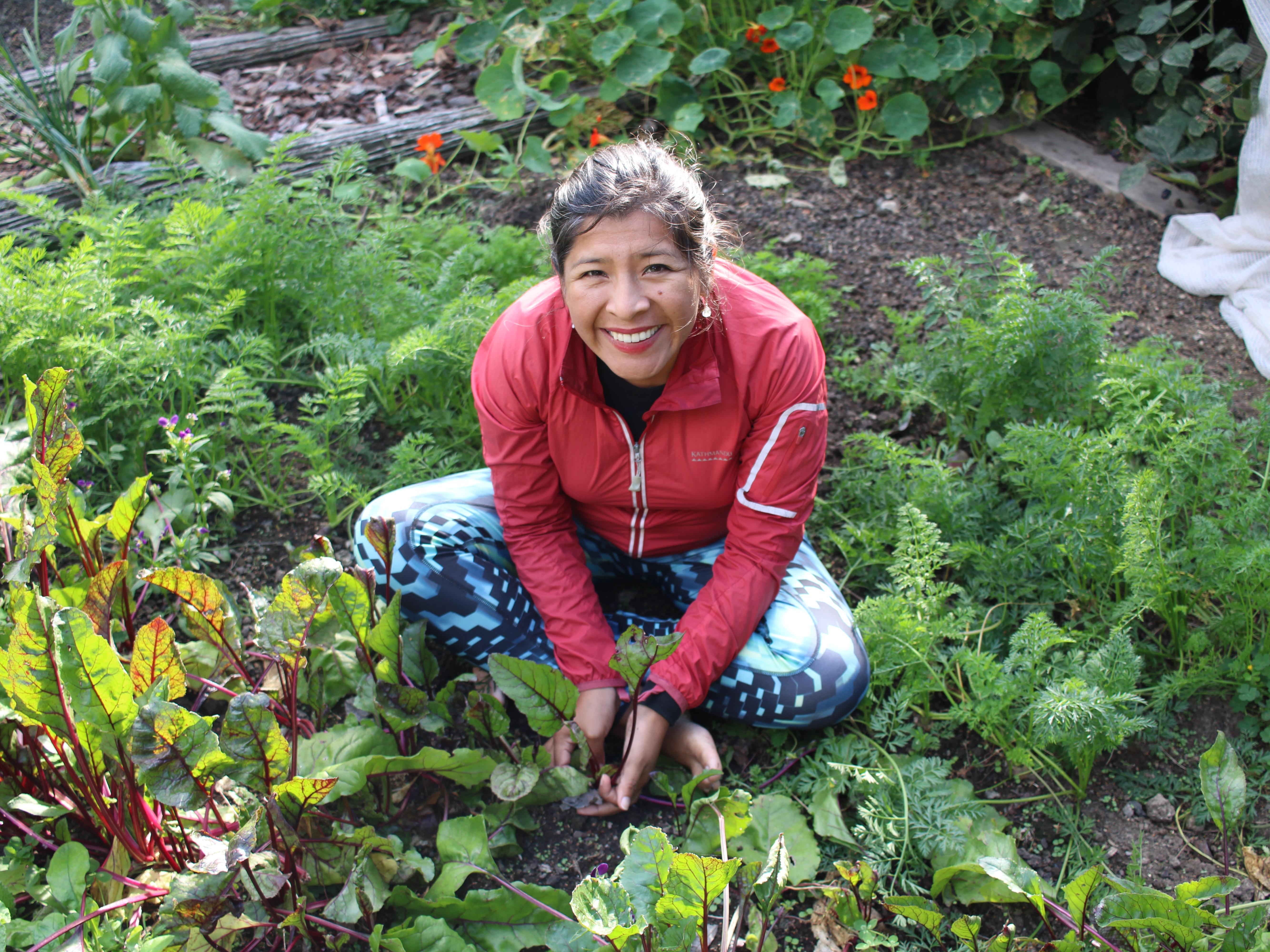The college’s Global Awareness Conference returns to an in-person format Nov. 1 to 5 with a theme of Indigenous food sovereignty.
Admission is free for the conference, which ties in with the Institute for Global Engagement’s Year of First Nations theme for 2021-22.
A keynote address by Mariaelena Huambachado and performance by Haudenosaunee Singers and Dancers at 5:30 p.m. on Friday, Nov. 5, in the Sheldon Hall ballroom will wrap up a week that includes discussions, an interactive exercises, food, a film and more.
Huambachano’s research and teaching are rooted in an interdisciplinary approach to Indigenous studies, environmental studies and sustainable development. These areas encompass food and climate justice, environmental governance, agroecology, public policy, community-driven development, traditional ecological knowledge and decolonizing methodologies. She has published in several journals and her current book manuscript, “Recovering our Ancestors’ Foodways: Indigenous Traditions as a Recipe for Living Well,” is a cross-cultural study of two Indigenous knowledge systems: Maori of Aotearoa-New Zealand and the Quechua people of Peru.
In fall 2021, Huambachano joined Syracuse University to help build a Global Native and Indigenous Research Centre and Department from the ground up. The native Peruvian Indigenous scholar is an active member of the United Nations Permanent Forum on Indigenous Issues, a lead author in the 16th High-Level Panel of Experts on Food Security and Nutrition (UNFAO) Report on “Promoting youth engagement and employment in agriculture and food systems” and for a global report on the “values” assessment of nature for the Intergovernmental Panel of Biodiversity and Ecosystems Services.
The Haudenosaunee Singers and Dancers are coordinated by Sherri Waterman-Hopper, a member of the Beaver Clan of the Onondaga Nation. The group shares perspectives from their culture through traditional social dances. Waterman-Hopper formed the group with her children more than 20 years ago to teach people in a joyful and positive spirit about the ways of her culture. “ People ask me if I live in a tipi, but our people never lived in a tipi’,” she said. “It is these misconceptions that we want to be able to educate people about."
This closing keynote will include a menu catered by Angela Ferguson, who also will provide the conference’s opening talk at 7 p.m. Monday, Nov. 1, in the Marano Campus Center auditorium (room 132).
Growing awareness
A member of the Onondaga Nation Eel Clan, Ferguson has been the Onondaga Nation Farm Crew Supervisor since 2015. Monday’s talk will see Ferguson discussing the operation and goals of the farm, which is responsible for all aspects of food sovereignty within their community.
Ferguson also is one of the organizers of Braiding the Sacred, which has gathered hundreds of Indigenous corn growers together to share knowledge from respected elders, seed sharing and planting methods.
The Witness to Injustice Kairos Blanket Exercise will unfold at 6:30 p.m. on Tuesday, Nov 2, at The Space at Marano Campus Center. Led by Cindy Squillace and the Witness to Injustice Team, the exercise is a program of Neighbors of the Onondaga Nation and a unique three-hour interactive group teaching tool.
The exercise uses participatory education to foster truth, understanding and respect between Indigenous and non-Indigenous peoples in the part of the world now known as the United States; especially in the territory stewarded by people of the Onondaga Nation and other Haundenosaunee peoples. Its coordinator, Squillace, also is a member of the Steering Committee of Neighbors of the Onondaga Nation.
A screening of the film “Gather” will take place at 7 p.m. Wednesday, Nov. 3, in the Sheldon Hall ballroom. The documentary is an intimate portrait of the growing movement among Native Americans to reclaim their spiritual, political and cultural identities through food sovereignty, while battling the trauma of centuries of genocide.
“Gather” follows Nephi Craig, a chef from the White Mountain Apache Nation (Arizona), opening an indigenous café as a nutritional recovery clinic; Elsie Dubray, a young scientist from the Cheyenne River Sioux Nation (South Dakota), conducting landmark studies on bison; and the Ancestral Guard, a group of environmental activists from the Yurok Nation (Northern California), trying to save the Klamath River.
Lauren Jimerson and Angel Jimerson will present on the Iroquois White Corn Project at 7 p.m. Thursday, Nov. 4, in the Sheldon Hall ballroom.
Angel Jimerson of the Seneca Heron Clan is the current production manager of the Iroquois White Corn Project, and works with Seneca Nation staff assisting in the production training of Gakwi:y:oh Farms, a program within the Nation that addresses food insecurity and food sovereignty through community engagement.
Lauren Jimerson of the Onöndowa'ga' Heron Clan is past interim project manager of the project, who credits her knowledge of white corn to her upbringing on the Cattaraugus Indian Reservation by learning from family. She also is a certified life coach and trained art therapist.
For more information on this year’s Global Awareness Conference, email james.lee@oswego.edu or jared.peterson@oswego.edu.




